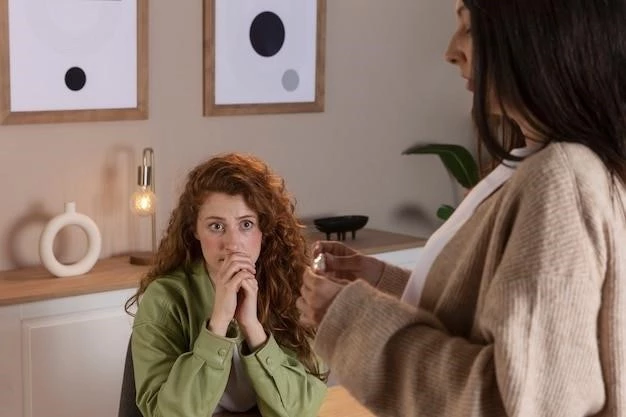Understanding Enetophobia
Welcome to an in-depth exploration of Enetophobia, a condition characterized by fear of pins and needles. This article delves into the causes, symptoms, impact on daily life, diagnosis, treatment options, coping strategies, overcoming medical procedures anxiety, seeking help, and more.
Introduction
Enetophobia, commonly known as the fear of pins and needles, is a specific phobia that falls under the broader category of blood test phobia. Individuals with this condition experience intense anxiety, fear, and avoidance behavior towards needles and pins, often associated with medical procedures. This fear can be overwhelming and significantly impact one’s quality of life. Understanding the causes, symptoms, and effective treatment methods for enetophobia is crucial in helping those affected lead a more comfortable and fulfilling life.

Understanding Fear of Pins and Needles
Fear of pins and needles, known as enetophobia, is a specific phobia characterized by an excessive and irrational fear of needles, pins, or sharp objects. Individuals with enetophobia may experience heightened anxiety, panic, and physical symptoms such as increased heart rate, sweating, and nausea when confronted with needles or pins; This fear often stems from a past negative experience, trauma, or a fear of pain associated with medical procedures. Understanding the underlying reasons for this fear is essential in effectively addressing and managing enetophobia.
Causes of Enetophobia
The causes of enetophobia, or fear of pins and needles, can vary from person to person. Common factors contributing to this phobia include past traumatic experiences involving needles or medical procedures, a fear of pain, feelings of vulnerability, or a general fear of the unknown. Genetics and familial predisposition to anxiety disorders may also play a role in the development of enetophobia. Understanding these underlying causes can aid in creating personalized treatment plans and strategies to help individuals overcome their fear of needles and pins.
Symptoms of Enetophobia
Individuals experiencing enetophobia may exhibit a range of physical, emotional, and behavioral symptoms when faced with needles or pins. Physical symptoms can include rapid heart rate, trembling, sweating, dizziness, and nausea. Emotionally, they may feel extreme anxiety, fear, or panic. Behavioral symptoms may involve avoidance of medical settings, refusal to undergo necessary procedures, or distress at the sight of needles. These symptoms can be distressing and impact daily functioning, highlighting the need for effective management strategies for enetophobia.
Impact of Enetophobia on Daily Life
The impact of enetophobia, or fear of needles and pins, on daily life can be significant. Individuals with this phobia may avoid medical care, leading to neglect of important health screenings or treatments. The fear can cause distress and anxiety when anticipating medical procedures involving needles, affecting overall well-being. In severe cases, enetophobia can result in emotional distress, social isolation, and a diminished quality of life. Addressing the impact of enetophobia is crucial in helping individuals manage their fear and navigate healthcare settings more effectively.
Diagnosis of Enetophobia
Diagnosing enetophobia involves a thorough evaluation by a mental health professional, such as a psychologist or psychiatrist. The process may include a comprehensive assessment of the individual’s medical history, symptoms, and triggers related to the fear of needles and pins. Psychometric tests, interviews, and observation of behavior in response to needle-related stimuli can aid in confirming the diagnosis. It is essential for an accurate diagnosis to be made to facilitate appropriate treatment and support for individuals struggling with enetophobia.
Treatment Options for Enetophobia
Treating enetophobia typically involves a combination of therapeutic interventions and medications. Cognitive-behavioral therapy (CBT), exposure therapy, and relaxation techniques are commonly used to help individuals manage and overcome their fear of needles and pins. Medications such as anti-anxiety drugs may be prescribed in some cases to alleviate symptoms of anxiety. Collaborating with mental health professionals to develop a personalized treatment plan based on individual needs and preferences is key to effectively addressing enetophobia and improving quality of life.
Coping Strategies for Individuals with Enetophobia
Individuals with enetophobia can benefit from implementing various coping strategies to manage their fear of needles and pins. Techniques such as deep breathing exercises, mindfulness, and positive visualization can help reduce anxiety levels in needle-related situations. Gradual exposure to needle stimuli in a controlled environment, with the support of a therapist, can also aid in desensitizing individuals to their fears. Engaging in activities that promote relaxation and self-care, such as yoga or meditation, can contribute to overall emotional well-being and resilience in coping with enetophobia.
Overcoming Fear of Medical Procedures
Overcoming the fear of medical procedures, particularly those involving needles or pins, is a crucial step in managing enetophobia. Building a trusting relationship with healthcare providers and openly discussing fears and concerns can help individuals feel more supported and in control during medical visits. Education about the procedures, their necessity, and potential pain management options can empower individuals to confront their fears. Utilizing relaxation techniques, mental imagery, and distraction methods during procedures can also assist in reducing anxiety and discomfort. Seeking gradual exposure and professional guidance can aid in gradually overcoming the fear of medical procedures associated with enetophobia.
Seeking Help for Enetophobia
Seeking help for enetophobia is a crucial step towards managing and overcoming the fear of needles and pins. Individuals can reach out to mental health professionals, such as psychologists or counselors, who specialize in treating phobias and anxiety disorders. These experts can provide a thorough assessment, offer psychotherapy, and guide individuals through tailored treatment plans. Support groups and online resources focused on enetophobia can also offer valuable information, peer support, and coping strategies. It is important for individuals experiencing enetophobia to recognize the importance of seeking professional help and support in addressing their fears effectively.
Conclusion
In conclusion, enetophobia, the fear of pins and needles, can severely impact individuals’ daily lives and well-being. Understanding the causes, symptoms, and effective treatment options is essential in helping those affected by this phobia. By seeking professional help, implementing coping strategies, and gradually facing fears through exposure techniques, individuals can work towards overcoming their fear of medical procedures and needles. With the right support and guidance, individuals with enetophobia can navigate healthcare settings with greater ease and lead a more fulfilling life free from the constraints of needle-related anxiety.
